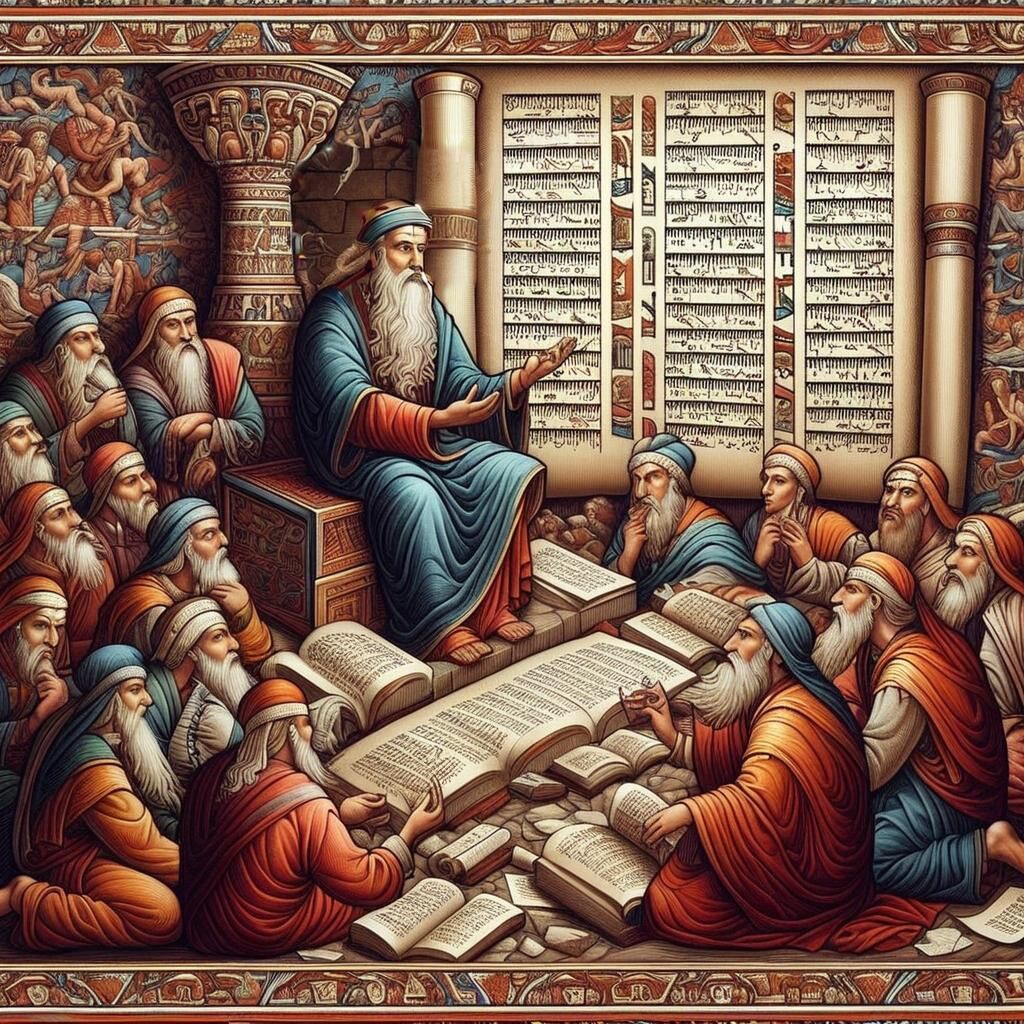Greetings, saints of the Most High! Welcome to another installment of the Messianic Torah Observer. Today, we delve into the intriguing topic of our Melchizedekian Priestly Pedigree, focusing on Jasher’s hidden chronicles.
In Part 3, we explored the theological implications of the Avram-Melchizedek encounter, discussing the dual offices of priesthood and kingship, the blessing conferred upon Avram, the significance of tithing, and the mysterious nature of Melchizedek. We also examined various religious perspectives on Melchizedek, including those from Catholicism, Islam, and Messianic Judaism.
Jewish legend and tradition often identify Shem, Noah’s righteous son, as Avram’s Melchizedek. However, there are several issues with this theory, including the lack of canonical biblical evidence and the improbability of Shem’s lifespan overlapping with Avram’s. Despite these concerns, the book of Jasher perpetuates this connection, presenting a narrative where Shem is indeed Avram’s Melchizedek.
Jasher’s account embellishes the biblical story, referring to Melchizedek as Adonizedek and describing a community meeting with Avram, bearing bread and wine. Interestingly, Jasher omits Melchizedek’s blessing of Yehovah, a curious detail given some ancient rabbinic opinions.
The narrative continues with Shem passing his prophecy school to Eber, his great-grandson, while the Melchizedekian priesthood is conferred upon Avram. This lineage, according to Jasher, includes notable figures like Adam, Enoch, and Noah, culminating in Avram.
However, the Jasher narrative raises questions about the authenticity and accuracy of these accounts. The Melchizedekian priesthood, as described in the Torah, operates outside biological heritage lines and temple sacrificial systems, foreshadowing the Spirit and Truth worship Yeshua spoke of.
Despite the conflicts between Jasher’s and the Torah’s accounts, we can glean significant insights into our Melchizedekian priestly pedigree. Concepts of righteousness, priestly conduct, obedience, and steadfast commitment to the faith form the foundation of our priestly calling. As students of Yahoshua’s Great School of Prophecy, we are in a season of training and preparation for our future roles in the Kingdom of Yehovah.
In conclusion, while I have my reservations about Jasher’s account, it offers valuable lessons about the godly elements that make up our Melchizedekian priestly pedigree. As we continue this series, we will explore these elements further, preparing us to serve as Melchizedekian kings and priests in the coming Kingdom of Yah.
May you be most blessed, fellow saints in training. Let us embrace our calling and prepare for the roles we are destined to fulfill.
Keeping God’s (Yehovah’s) Feasts
I give an overview of the Creator’s Feasts by discussing why we keep them; when we keep them and what they mean. Shalom and welcome.
M’tzora-Person Afflicted With Leprosy-Torah Portion 28-Commentary
Parashah 28-M'tzoro--Person Afflicted With Tzara'at Continuation This week's Torah Portion/Reading entitled "M'tzoro," or a "Person Afflicted with Tzara'at (Leprosy)" is somewhat of a continuation of last week's reading (ie., Tazaria) that dealt with the diagnosis and...
Tazria (She Conceives)-Leprosy, A Shadow of Sin and the Healing Work of Messiah–Parashah-27
In this week’s Torah Portion entitled Tazria, we consider the spiritual applications of leprosy.
How to Keep (Guard) the Month of the Aviv–Replay
In this replay of a past episode, we discuss how to keep–how to guard the Month of the Aviv. Happy New Year! Shalom.
Irresistible Holiness-Torah Portion-26-Eighth-Shi’mini–TMTO-23
What Father is essentially saying here to us through this shadow picture—this lesson—this Torah Portion—is, “Look, I’m going to get the glory and my holiness is going to be proclaimed and demonstrated to all the world. Now this can be done by and through your actions of obedience and worship of me. And if you choose to glorify me and extol the virtues of my holiness to the world, you’re going to have to do it my way. For if you don’t choose to do it my way, then I’m still going to get the glory and my holiness will be demonstrated and manifested through my chastising of you. You see, it’s going to be done my way; or it’s going to be done my way. Either way, I’m going to be glorified and deemed holy to all the world.”
Torah Portion 25–Give An Order–A Call To Worship
This week’s Torah Reading-Parashah-25–dealt with sacrifices and offerings. These were shadows of our worship of Father in Spirit and in Truth.
Let Your Women Keep Silence in the Church–Part-9 of the Paul and Hebrew Roots Series
We break down 1 Corinthians 14:34-35 to determine what Paul really meant when he instructed that the Corinthian women keep silence in the church.
Patterns of Evidence-The Moses Controversy Film Review
In this 21st installment of The Messianic Torah Observer, I review Tim Mahoney’s newest documentary, “Patterns of Evidence-The Moses Controversy.”
Thoughts and Reflections on Torah Reading Pedudei-Accounting Of
This week's Torah Reading entitled Pedudei (ie., Accounting Of) focused on worship. The reading consisted of Leviticus 1:1 to Lev. 5:6:7. The Haftorah consisted of Isaiah 43:21-44:23. Specifics of Worship That which was given to us by Abba related to worship...
TMTO-20-Endure Sound Doctrine I Will Not
Many members of the Body of Messiah will not endure sound doctrine as they are being led astray by false teachers or they themselves are teaching false doctrine. We discuss this troubling situation and provide ways to overcome the deception.

